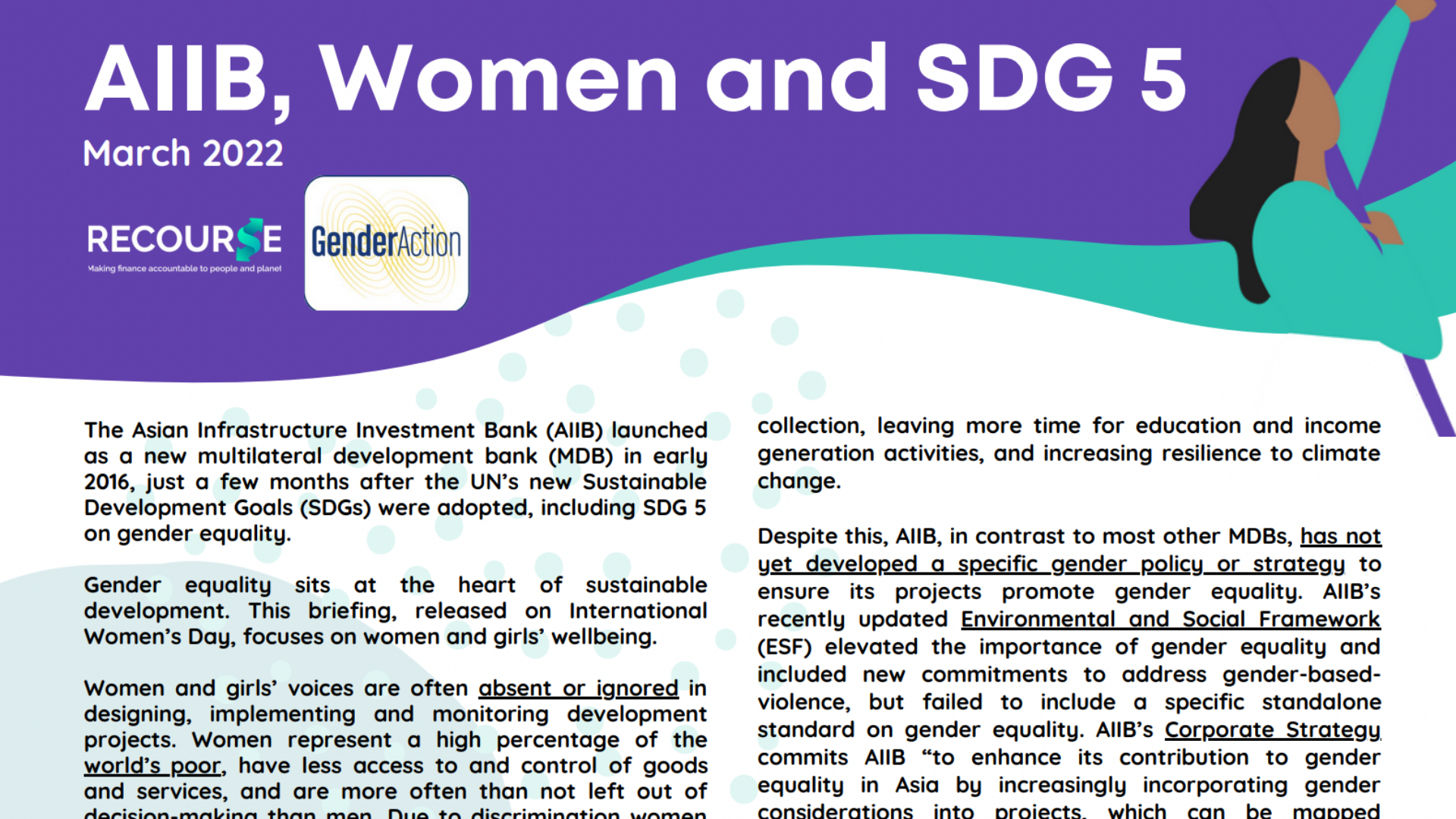- 08.03.2022
- Rights & Accountability
- Array
On International Women’s Day, Recourse and Gender Action have released a new briefing calling on the Asian Infrastructure Investment Bank (AIIB) to develop a mandatory, robust and freestanding gender policy.
AIIB launched as a new multilateral development bank (MDB) in early 2016, just a few months after the UN’s new Sustainable Development Goals (SDGs) were adopted, including SDG 5 on gender equality.
Despite this, AIIB, in contrast to most other MDBs, has not yet developed a specific gender policy or strategy to ensure its projects promote gender equality. AIIB’s recently updated Environmental and Social Framework (ESF) elevated the importance of gender equality and included new commitments to address gender-based-violence, but failed to include a specific standalone standard on gender equality. AIIB’s Corporate Strategy commits AIIB “to enhance its contribution to gender equality in Asia by increasingly incorporating gender considerations into projects, which can be mapped against SDG 5”. But it fails to provide any further detail or targets, apart from one related to AIIB’s internal workforce diversity. AIIB’s sector strategies – for example, on energy or transport – include few mentions of gender and women, mainly as background information and with no specific gender-related targets.
Forthcoming opportunities to address this gap include the forthcoming Energy Sector Strategy review and the development of AIIB’s first Paris alignment methodology. Both must include clear commitments to address gender inequality. But ultimately, AIIB must also fill the void where an overarching institutional gender strategy should sit.
The organisations call on the AIIB to adopt and systematically implement a mandatory, robust and freestanding gender policy, including requirements and targets to:
- prevent harmful gender impacts and address the differentiated impacts and needs of all genders
- incorporate gender issues into all environmental and social risk assessments
- apply a gender-lens to all climate assessments
- actively include women in consultations, including holding sex-segregated consultations
- guarantee gender-equal labour protections, hiring practices, and occupational health and safety protocols
- provide gender-sensitive resettlement, livelihood restoration and other compensation measures
- systematically collect gender-disaggregated baseline data, followed by regular monitoring and evaluation
- ensure the new Energy Sector Strategy places women’s access to energy front and centre
Read the full briefing here.

